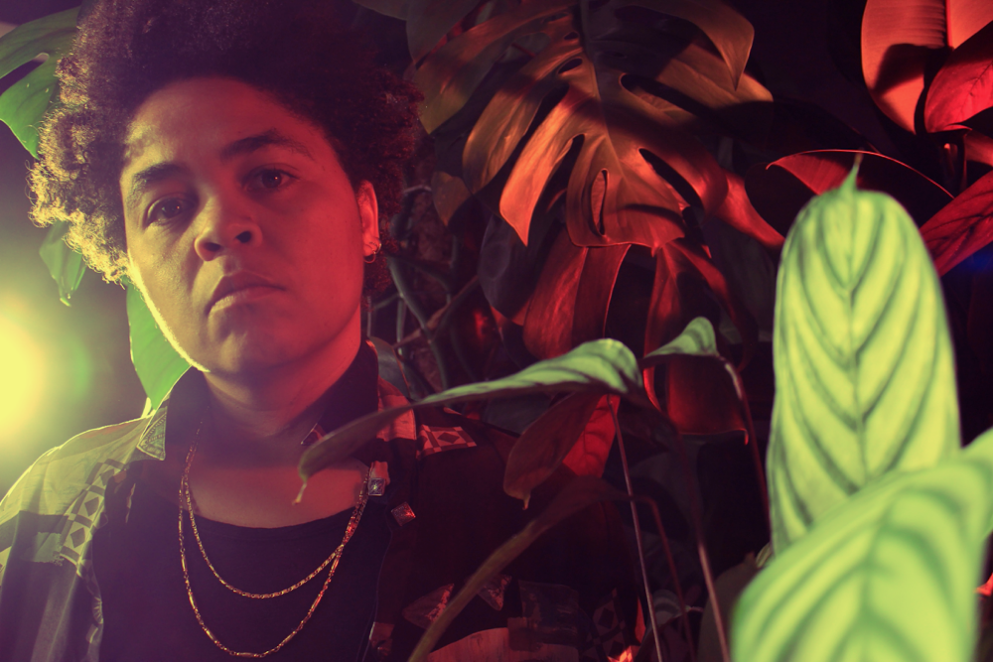We’ve been fans of Dutch-Zimbabwean artist Rina Mushonga ever since we saw her video for the very good AtalantA earlier this year. As she prepares to release her upcoming second album, and we continue to celebrate International Women’s Day here on i-D, take a look at Rina’s specially created African Wonder Women playlist.
Zap Mama, Brrrlak
“Zap Mama’s dope mix of African vocal techniques, Afropop, hip-hop, nu-soul and a whole bunch of their own fresh stylings was definitely part of my jam growing up. Also the Daulne sisters are half Belgian and half Congolese and there weren’t a whole lot of mixed-race girls making music like that that I knew of – so that really stood out to me. Plus them just being an all female group who were for real and cool and fresh and empowering definitely inspired me!”
Miriam Makeba, Khawuleza
It’s impossible to have any kind of list on iconic game changing African women without including the awe inspiring Miriam Makeba. They don’t call her Mama Africa for nothing. Her gracefulness and bravery to speak out in the face of such adversity, her activism and her helping to bring African music to the world all make her an undeniable icon in my eyes.
Chimamanda Ngozi Adichie, We Should All Be Feminists
Her work not just as a writer but as a feminist engaging debate on gender equality and Pan Africanism is so vital. Representation is so, so important and seeing this powerful African woman eloquently dismember tired clichés about what it means to be a woman, an African woman – it’s just really uplifting! I heard they gave every 16-year-old in Sweden a copy of her essay, We Should All Be Feminists – how awesome is that for shaping culture!
Muthoni The Drummer Queen, Turn on the Lights
Aight, so she’s not super famous but this Kenyan emcee is a total badass – drummer, producer, songwriter, emcee and entrepreneur. I feel it’s important to also acknowledge the kickass young African women who continue to shape and empower their culture and community everyday, just by making brilliant art and representing.
Brenda Fassie, Vulindlela
Also dubbed as the Madonna (as in the popstar, not the mother of Jesus) of the townships. She was a definite Afro-pop queen and pretty wild. She was outspoken and provocative both onstage and off. Considering how queerness and women’s sexuality in general is still viewed in many (African) countries, she displayed a level of bold self-acceptance in her music and performances that I think we can all look to for inspiration.
Chiwoniso, Wandirasa
Besides being a phenomenal musician, I have been lucky to know Chiwoniso as a friend. I met her when I was starting out, playing open nights at the Book Café in Harare where we became fast friends. I would holler at her to play this song and sometimes we’d sing it together. As I was fumbling my way through trying to find my own voice somewhere in my mixed Zimbabwean/European (musical) heritage, seeing her effortlessly use traditional instruments combined with contemporary melodies, singing in Shona and English, was really encouraging. She was always super supportive of my work and we laughed a lot together. She passed away, sadly, in 2013, but I will never forget the imprint she’s left on me and my music.
Michael Jackson, Remember the Time
This elaborate music video for Michael Jackson’s Remember the Time features the stunning Somali top-model, activist and businesswoman Iman. Besides being awesome, this was one of my first encounters with Iman – sat there all regal and insanely beautiful as MJ seduces her with his smooth moves and no doubt his gold glittery top. Iman was pivotal in paving the way not only for African models but for women of colour in the fashion industry in general. She remains a strong advocate for diversity in the fashion world, calling out racism and challenging oppressive stereotypes about women. Representation is everything!
Yugen Blakrok, House of Ravens
It inspires me to see young African women like Yugen Blakrok represent so dynamically – I love her flow, I love her style – and with regards to shaping and changing culture we really can’t have enough female emcees. She empowers simply by doing her own awesome thing!
Wangechi Mutu + Santigold, The End of eating Everything
Kenyan artist Wangechi Mutu is often dubbed as one of the leading contemporary African artists of recent years (although I feel these kinds of labels sometimes seem a little reductive). I love how she uses her self-proclaimed ‘obsession’ with the black female body in her work to confront a sense of invisibility and the lack of representation of young African women in mainstream art and media. South African artist Lady Skollie is also one to keep an eye out for. Her vibrant work specifically engages with themes of sex, sexuality and gender.
It’s really essential and emboldening to have such talented women contribute not only to increasing our representation but whom also strive diligently to change and challenge the world’s limited representation and view of African women. This video is an excerpt from a collaboration Wangechi Mutu did with Santigold (who also rocks).
Rina Mushonga’s AtalantA is out now.
